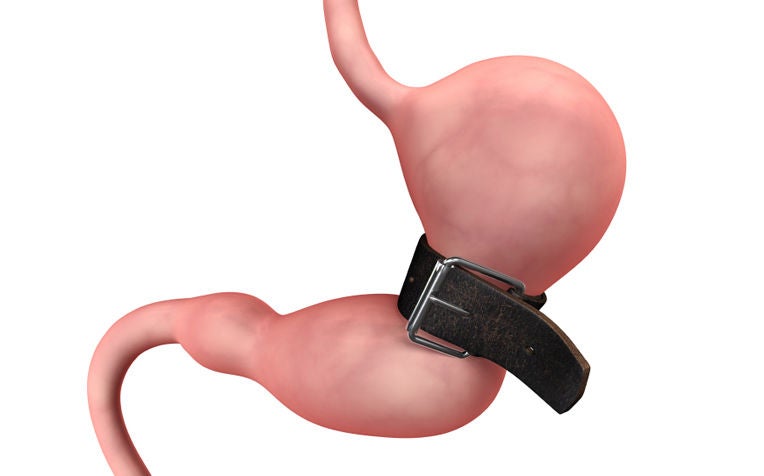
Weight loss surgery is advised for severe obesity
If you are severely obese and have diabetes or any other obesity-related medical condition, you may be a suitable candidate for weight loss surgery.
Weight loss surgery or bariatric surgery, is medically advised in Singapore when a person’s body mass index (BMI) is over 37.5, with no accompanying health condition. Alternatively, it is recommended when the BMI is over 32.5 and accompanied by obesity-linked diabetes, high blood pressure, high cholesterol or obstructive sleep apnoea (OSA).
“A doctor will undertake bariatric surgery only if you are severely obese and have been unable to lose weight with lifestyle and dietary changes or medication, despite a high level of commitment,” says Dr Shanker Pasupathy, Senior Consultant and Director of the LIFE Centre, Singapore General Hospital (SGH), a member of the SingHealth group.
There are four main bariatric surgery procedures performed in Singapore. These are:
- Gastric balloon
- Laparoscopic adjustable gastric banding
- Laparoscopic sleeve gastrectomy
- Laparoscopic Roux-en-Y gastric bypass
Pros and cons of the various bariatric surgery procedures
Gastric balloon
What it is: A silicone balloon is inserted into the stomach through the mouth, with the help of a thin, flexible telescope called endoscope. The balloon is then filled with a saline solution, making the patient feel full sooner and thereby reducing food intake.
Pros
- Relatively simple and non-invasive method
Cons
- The balloon has to be removed after 6 months because of degradation by gastric acid.
Laparoscopic adjustable gastric banding
What it is: An adjustable silicone band is placed around the upper part of the stomach to reduce its size. The band is connected to an access port placed under the skin, usually in the upper abdomen. Fluid can be injected or removed through this port to adjust the size of the band. This procedure restricts the amount of food the stomach can hold, making the patient feel full sooner.
Pros
- Relatively simple and minimally invasive procedure
- Reversible
- Improves mild diabetes
- Low complication rate in the initial stage
Cons
- Requires regular adjustment in clinic
- Some patients may not be able to tolerate the “tight” sensation of the band
- At a later stage, may cause complications such as infection, band erosion or slippage
- May require repeat surgery
Laparoscopic sleeve gastrectomy
What it is: This is a relatively new procedure in which up to 75 per cent of the stomach is removed and the remainder is shaped into a tube (called sleeve) with stapling. The smaller stomach can hold less food, which limits calorie intake.
Pros
- No insertion of foreign body into the stomach
- Rapid initial weight loss
- Better reduction of hunger compared with banding
- Improvement of mild diabetes
Cons
- This procedure is permanent and irreversible
- Since this is a relatively new procedure, long term results (over five years) are still unknown
- Staple line on stomach can bleed or leak
Laparoscopic Roux-en-Y gastric bypass
What it is: In this well established gastric bypass procedure, a small pouch is created at the top of the stomach. This pouch is then directly connected to a lower section of the small intestine. Since food bypasses a part of the small intestine, fewer calories end up being absorbed.
Pros
- The gastric bypass procedure has been performed for over 40 years
- Greater weight loss than with other methods
- Can reverse type 2 diabetes
Cons
- Surgeon needs to be well trained
- Staple line and gastrointestinal connections can bleed or leak
- Risk of complications such as stomach ulcers and twisting/adhesion of intestines
- Lifelong specialist care and nutritional supplements are required to prevent nutritional deficiencies in the long-term
Before and after bariatric surgery
Before any weight loss surgery, patients are subjected to various tests, including respiratory and cardiac assessment, to determine their suitability. Two weeks before surgery, they are placed on a special low-calorie diet.
Post-surgery, the patient may be restricted to fluids for the first two weeks after which solid food can be gradually re-introduced.
“Due to the risks involved – and to maximise the benefits – patients undergoing weight-loss surgery should receive lifelong monitoring by a multidisciplinary team comprising of a surgeon, physician, physiotherapist and dietitian,” says Dr Pasupathy.
Even with weight-loss surgery, patients will need to make healthy lifestyle and dietary changes to avoid regaining weight.
Need help adopting a better lifestyle? The LIFE Centre at Singapore General Hospital (SGH) has a multidisciplinary team of experts who can provide you with guidance on weight management, exercise and diet.
Ref: S13
Contributed by


















 Get it on Google Play
Get it on Google Play